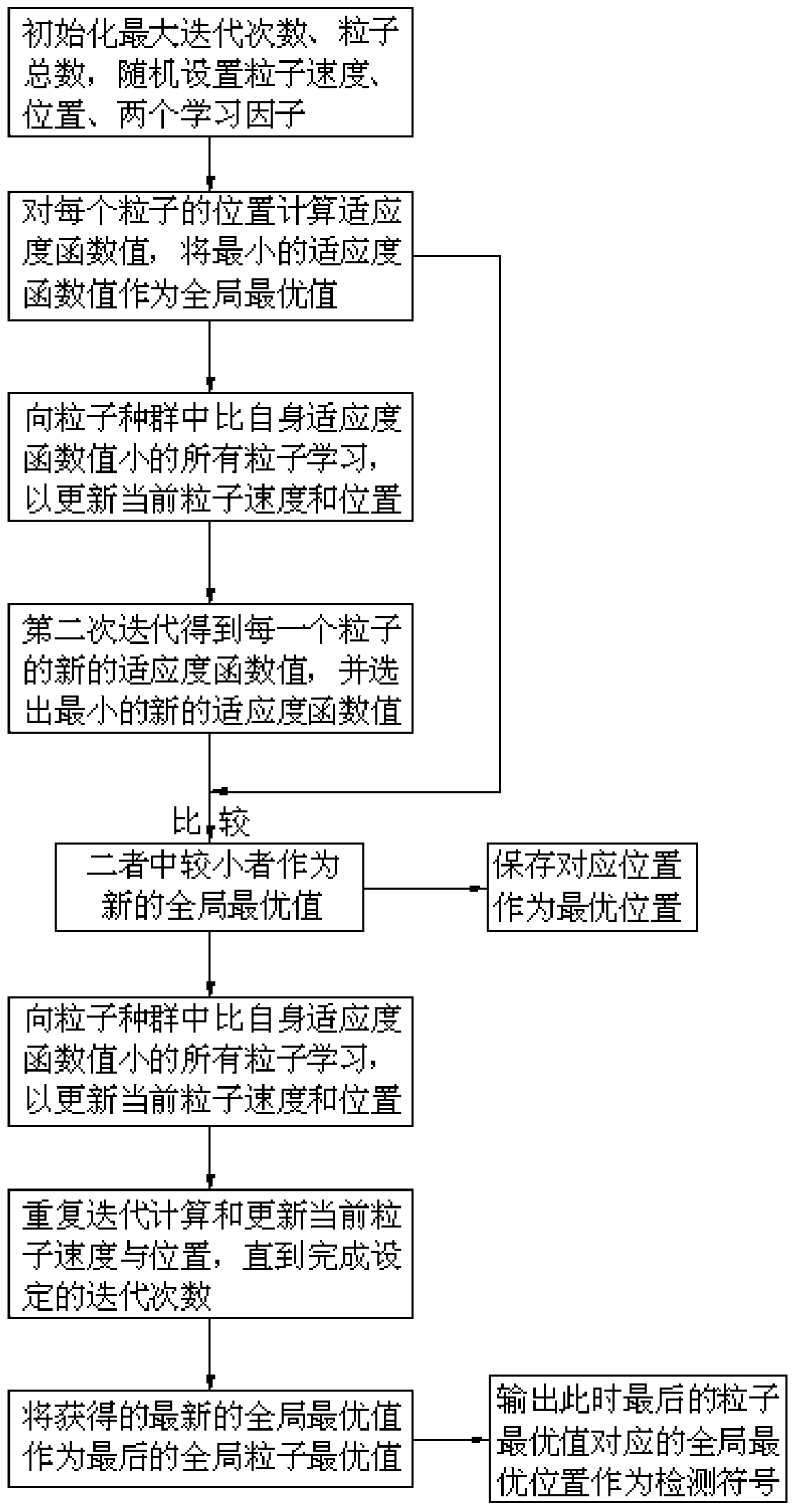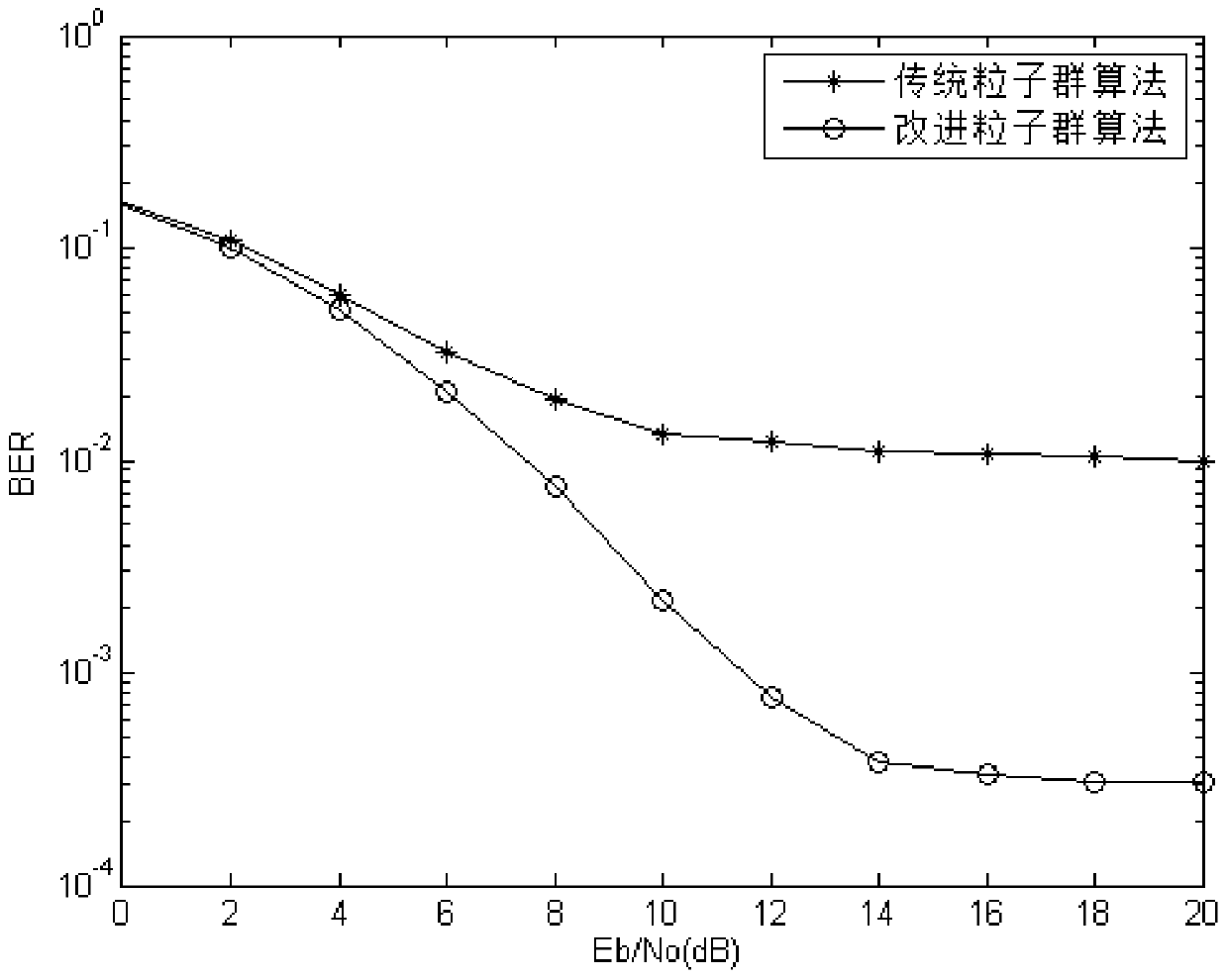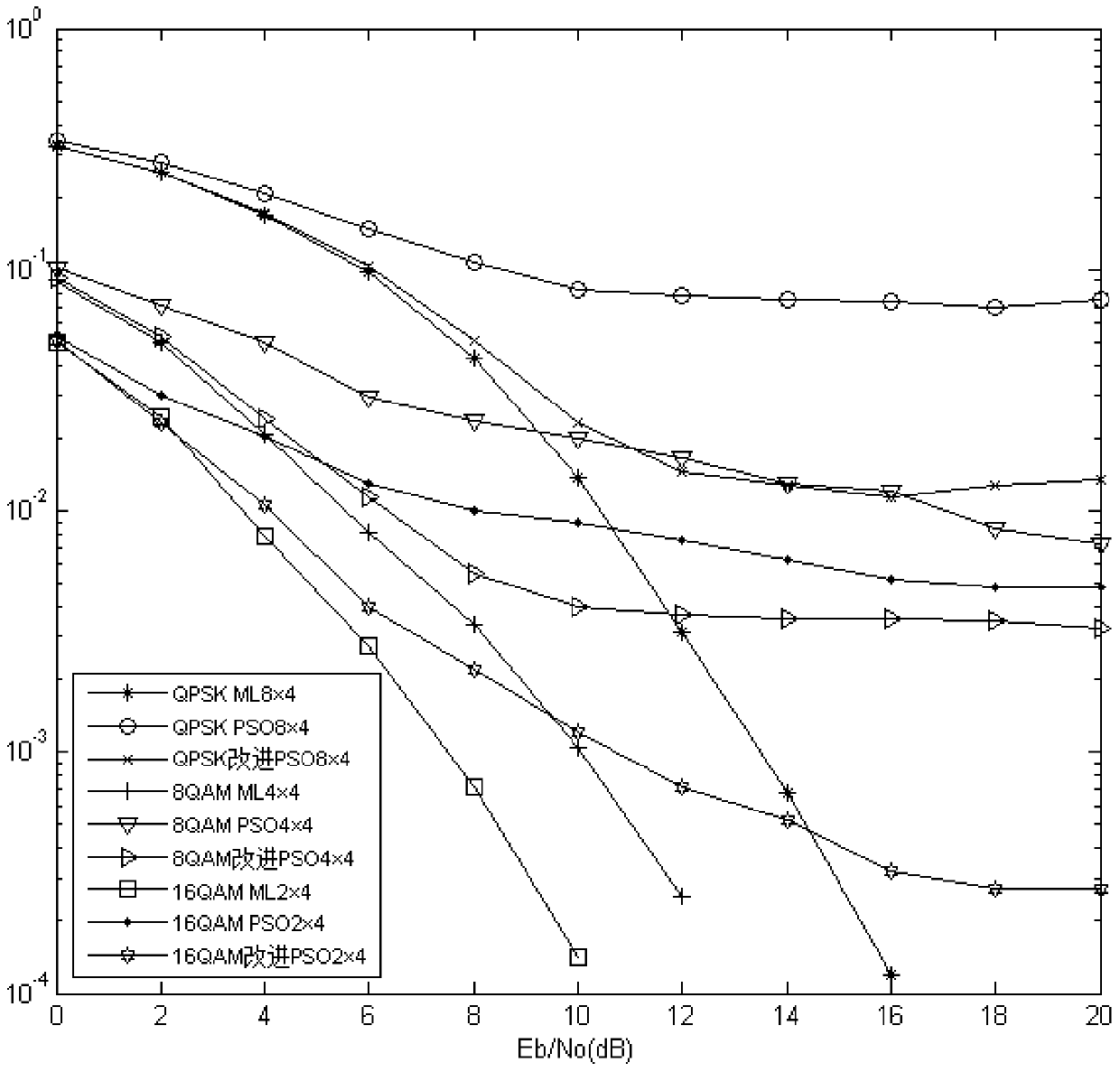Detection method for spatially modulated signals
A detection method and spatial modulation technology, applied in the direction of preventing/detecting errors through diversity reception, can solve problems such as reduced convergence performance, and achieve the effects of improved convergence and low computational complexity
- Summary
- Abstract
- Description
- Claims
- Application Information
AI Technical Summary
Problems solved by technology
Method used
Image
Examples
specific Embodiment approach 1
[0021] The detection method used for spatially modulated signals in this embodiment, the Particle Swarm Optimization algorithm (ParticleSwarm Optimization, PSO) was proposed by Dr. Eberhart, an American electrical engineer, and Dr. Kennedy, a social psychologist, from the predation behavior of birds in 1995. An evolutionary computing algorithm based on , shortly after it was published, it became the focus of researchers in related fields abroad. The PSO algorithm has the advantages of concise concept, easy implementation and fast convergence. In recent years, the particle swarm optimization algorithm has been widely used in many fields such as combinatorial optimization, intelligent computing and neural network.
[0022] Such as figure 1 As shown, the detection method is realized through the following steps:
[0023] Step 1. In the D-dimensional space, the potential solution of the transmitted signal to be detected is regarded as a particle, and all potential solutions form ...
specific Embodiment approach 2
[0029] The difference from Embodiment 1 is that, in the detection method for spatially modulated signals in this embodiment, the current particle velocity of each particle is updated as described in step 3 By formula: Learn from all particles in the population that are smaller than the fitness function value q of the current particle position to get the updated speed In the formula,
[0030] Indicates the gap between the global optimal position and the current particle position, c 1 is a randomly generated number between 0 and 4, preferably 2;
[0031] Indicates to learn from all particles in the population that are smaller than the fitness function value q of the current particle position according to different weights, c 2 It is a randomly generated number between 0 and 4, the preferred value is 2, and m represents the sequence number of the current particle; for example, the current particle i is particle No. 8, its sequence number is 3, and the sequence number of...
specific Embodiment approach 3
[0038] Different from the first or second specific embodiment, in the detection method for spatially modulated signals in this embodiment, the current particle velocity The degree of learning to all particles in the population that are smaller than the fitness function value q of the current particle position is determined by the weight function ω nd Decide.
PUM
 Login to View More
Login to View More Abstract
Description
Claims
Application Information
 Login to View More
Login to View More - R&D
- Intellectual Property
- Life Sciences
- Materials
- Tech Scout
- Unparalleled Data Quality
- Higher Quality Content
- 60% Fewer Hallucinations
Browse by: Latest US Patents, China's latest patents, Technical Efficacy Thesaurus, Application Domain, Technology Topic, Popular Technical Reports.
© 2025 PatSnap. All rights reserved.Legal|Privacy policy|Modern Slavery Act Transparency Statement|Sitemap|About US| Contact US: help@patsnap.com



